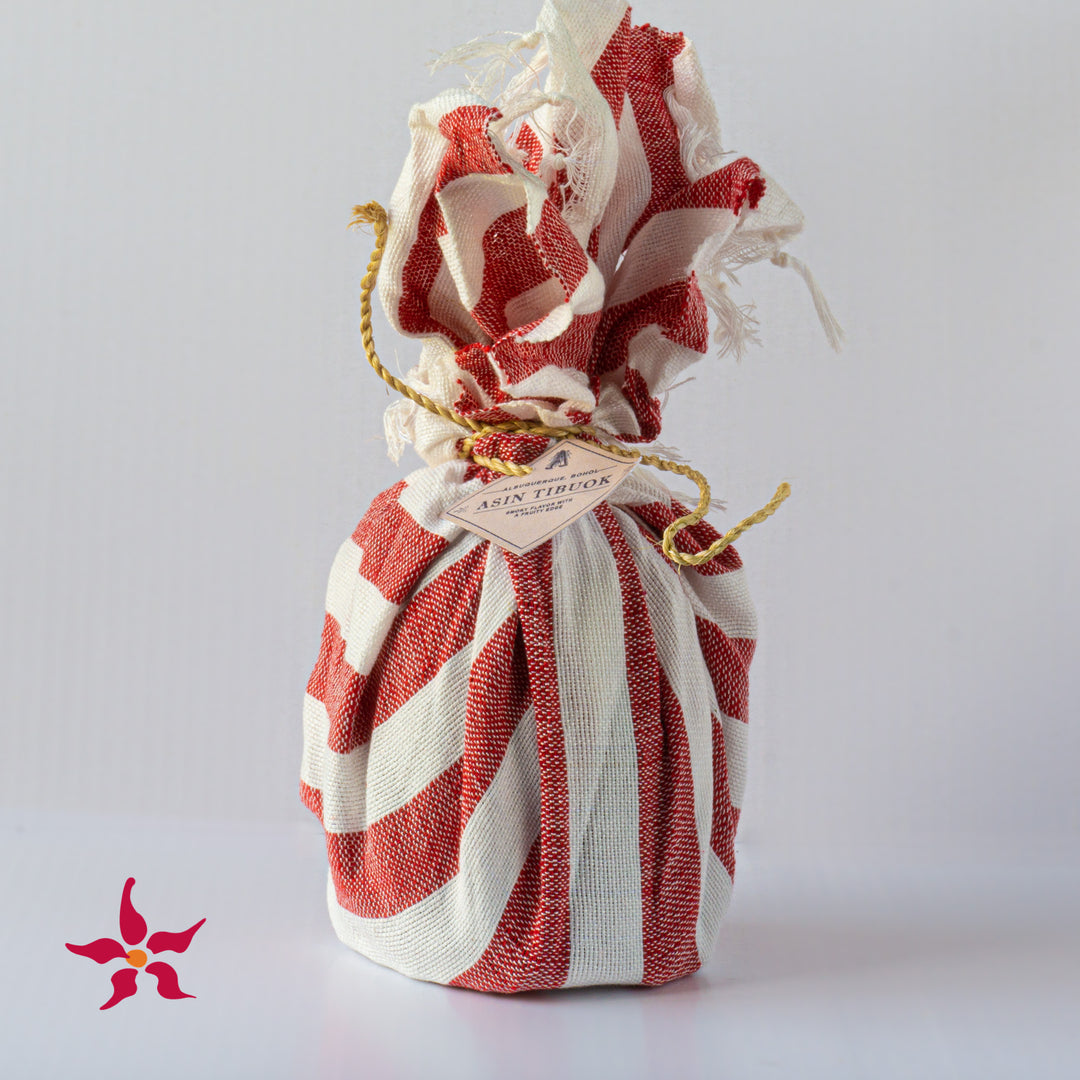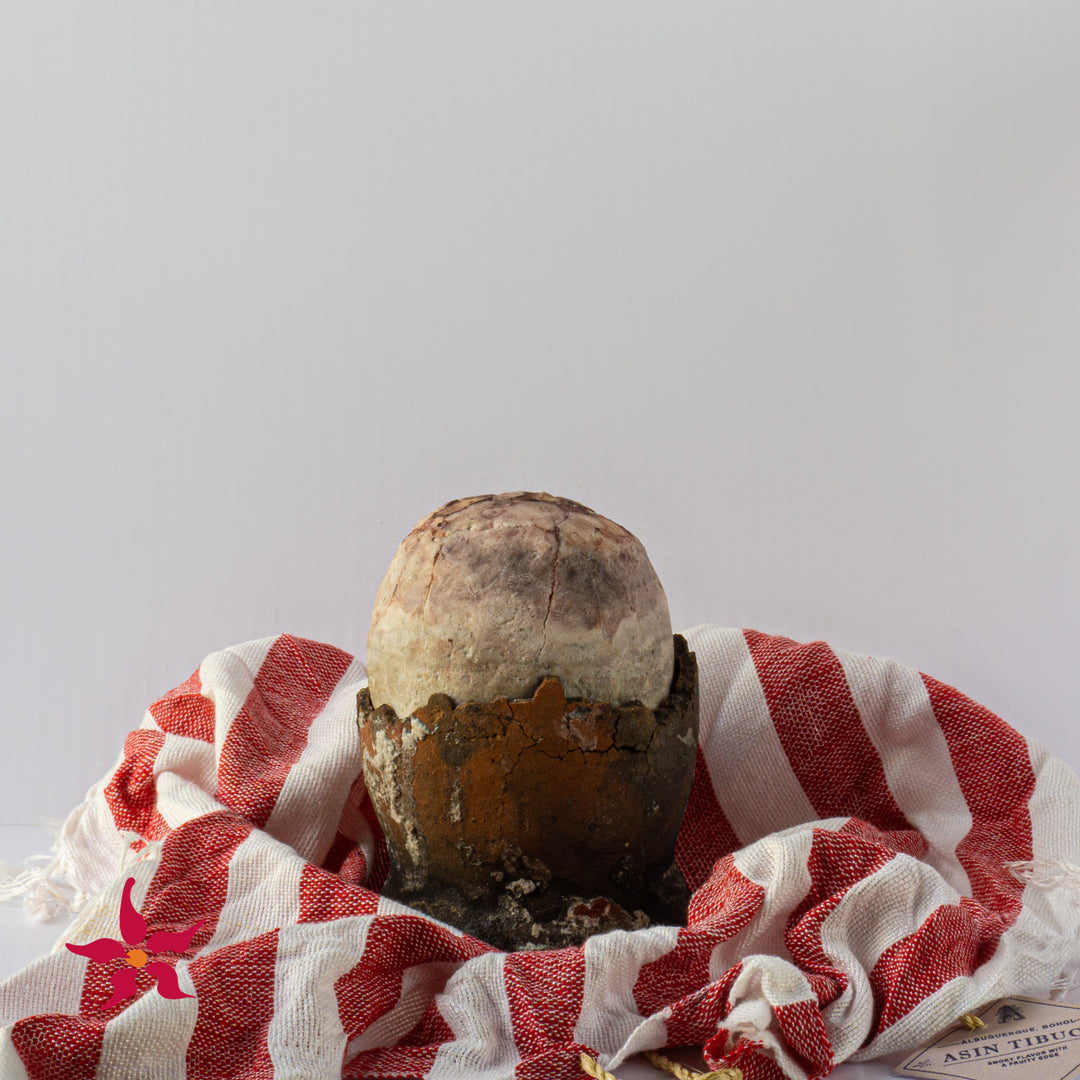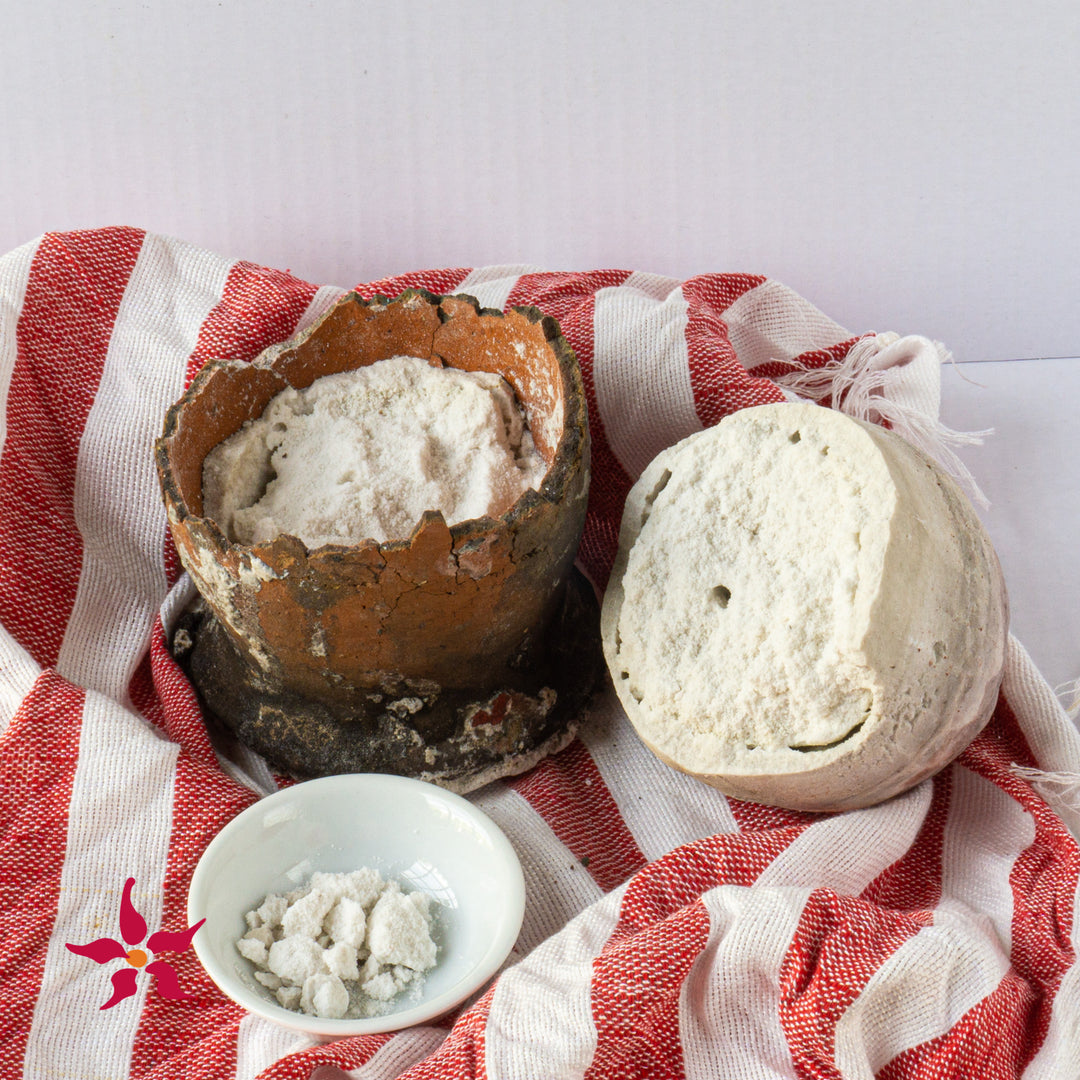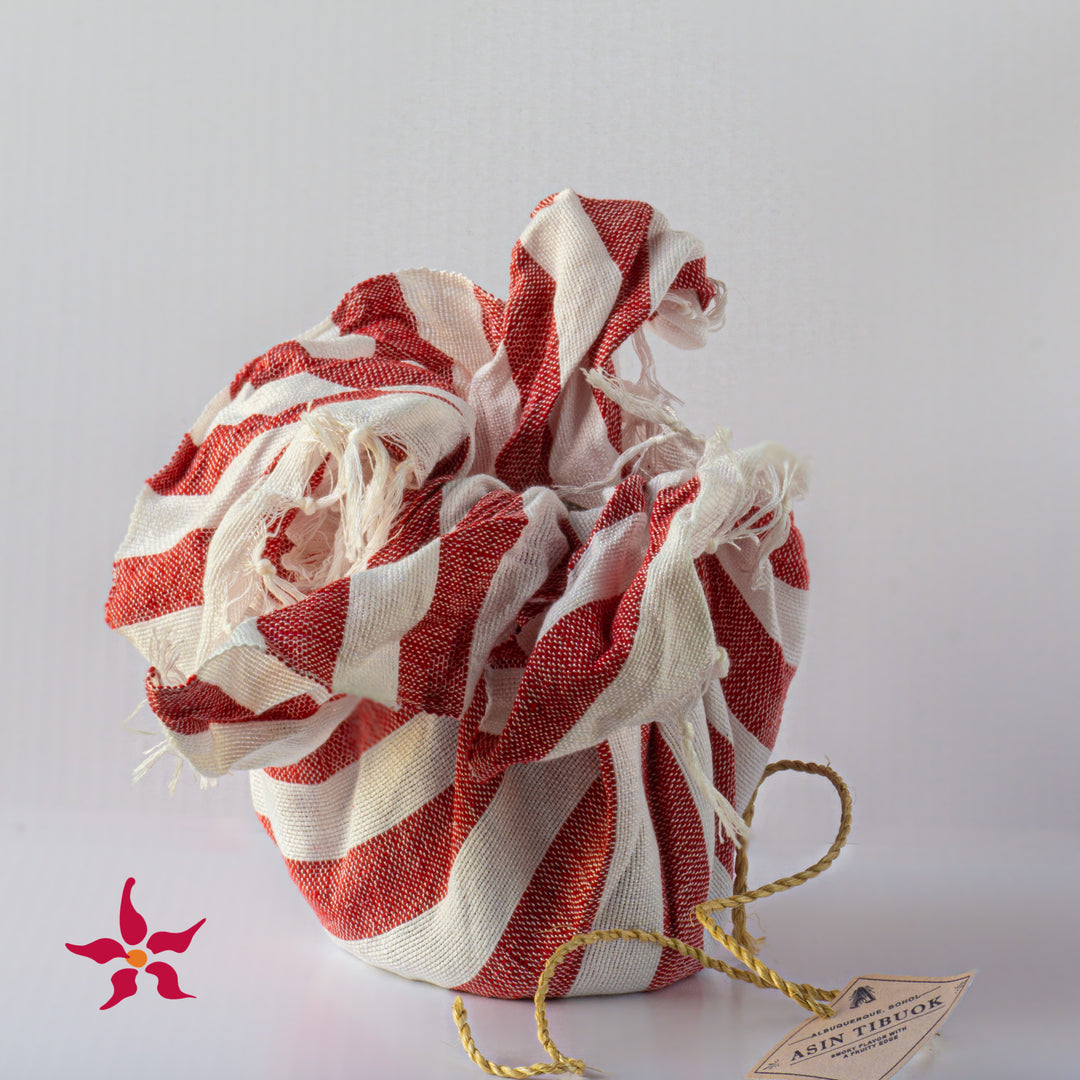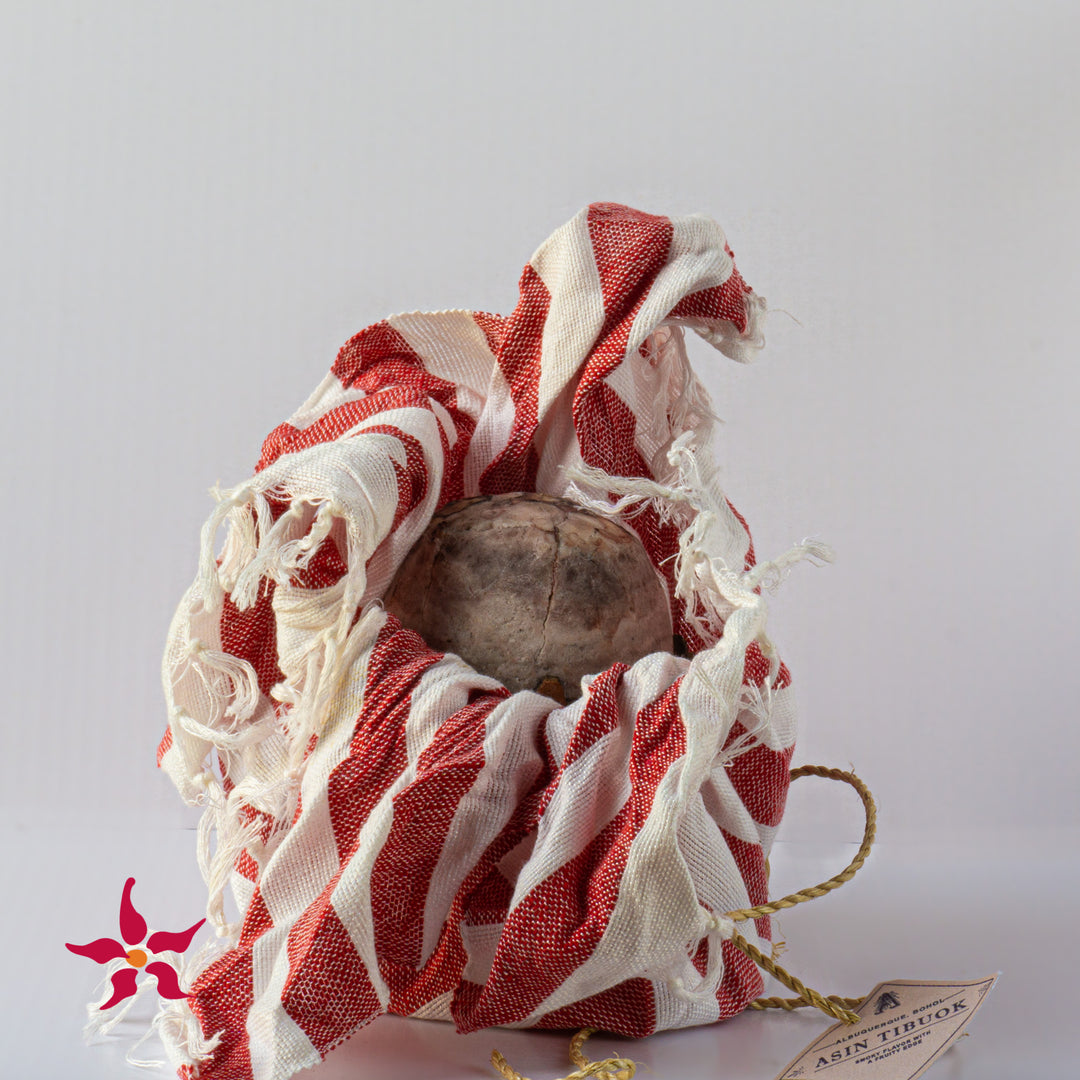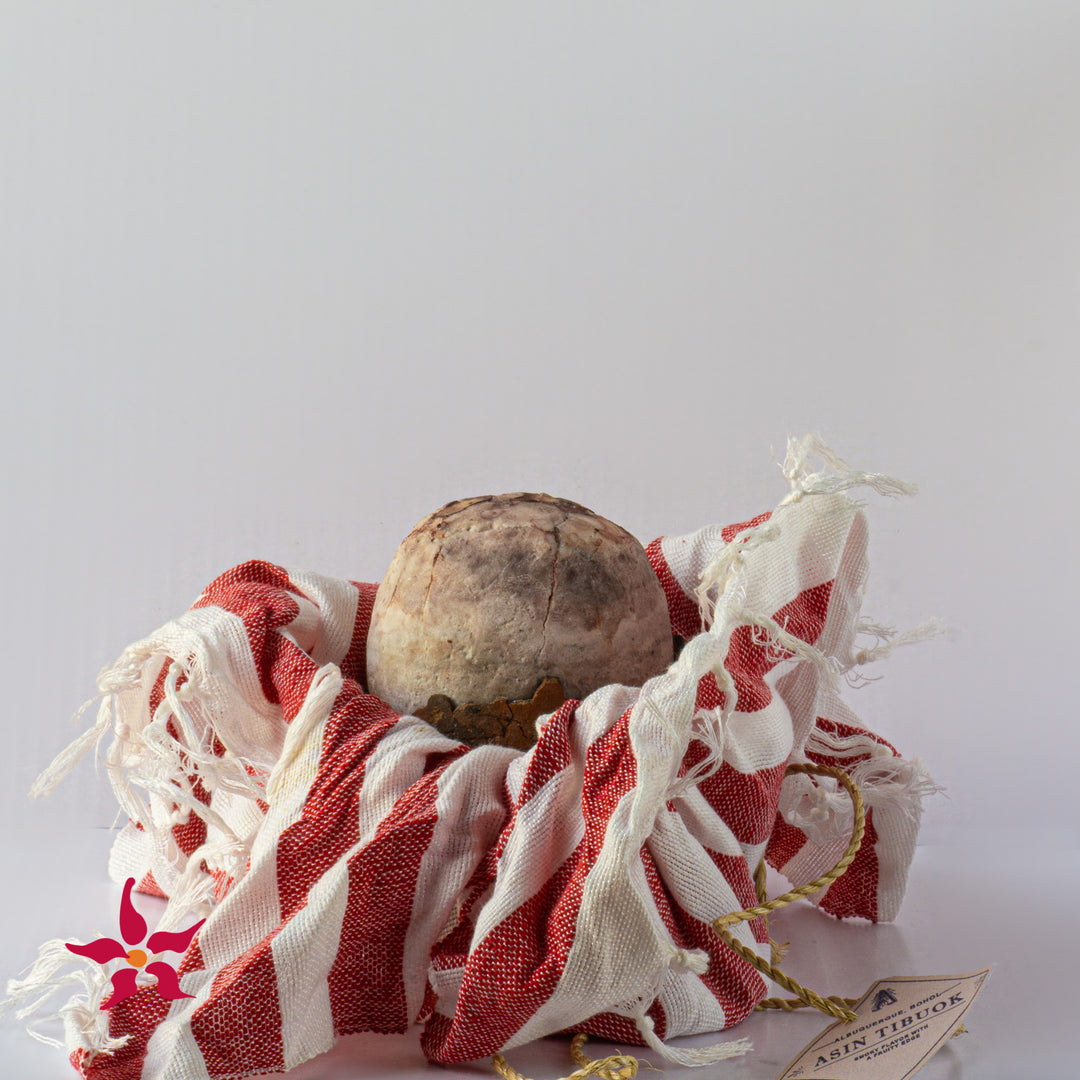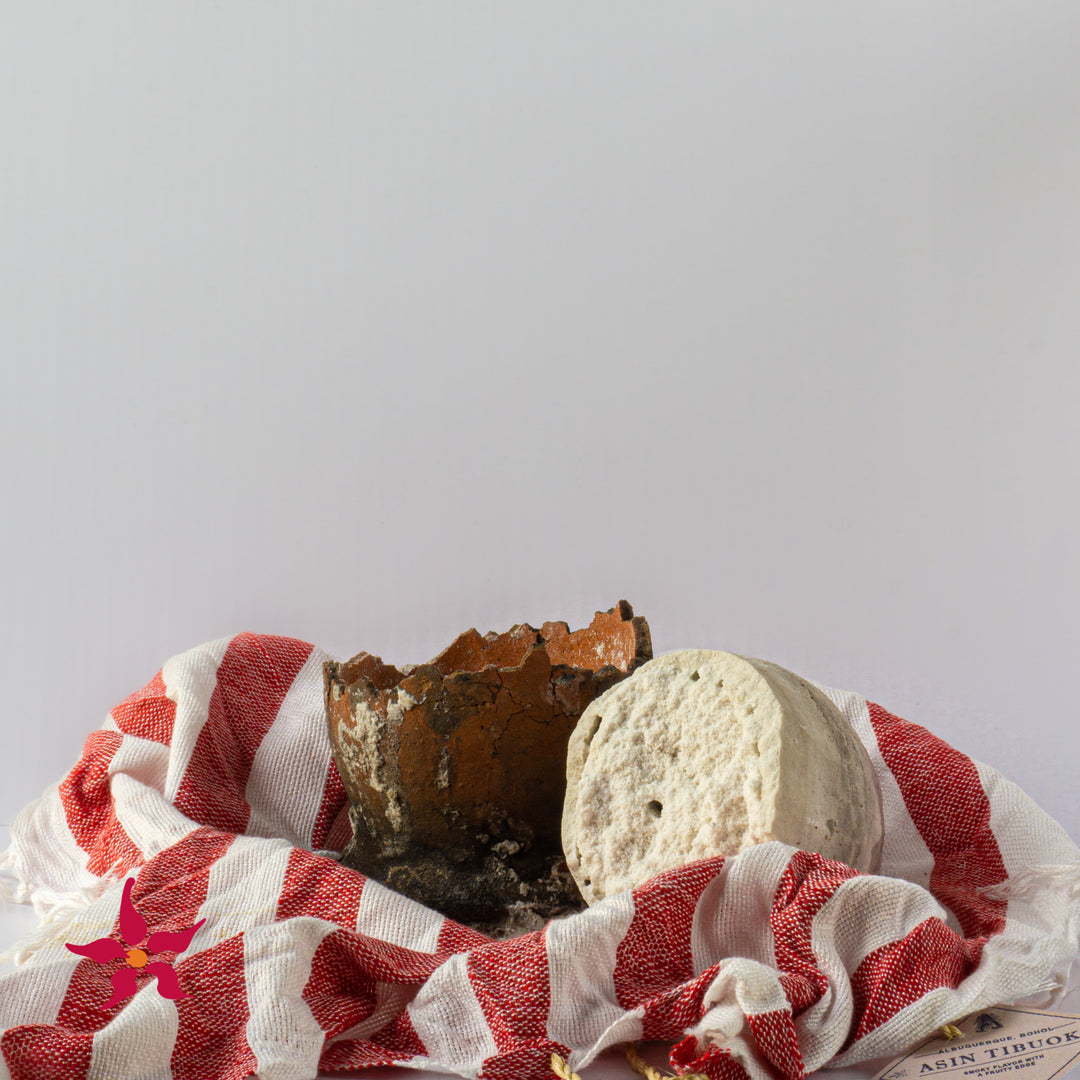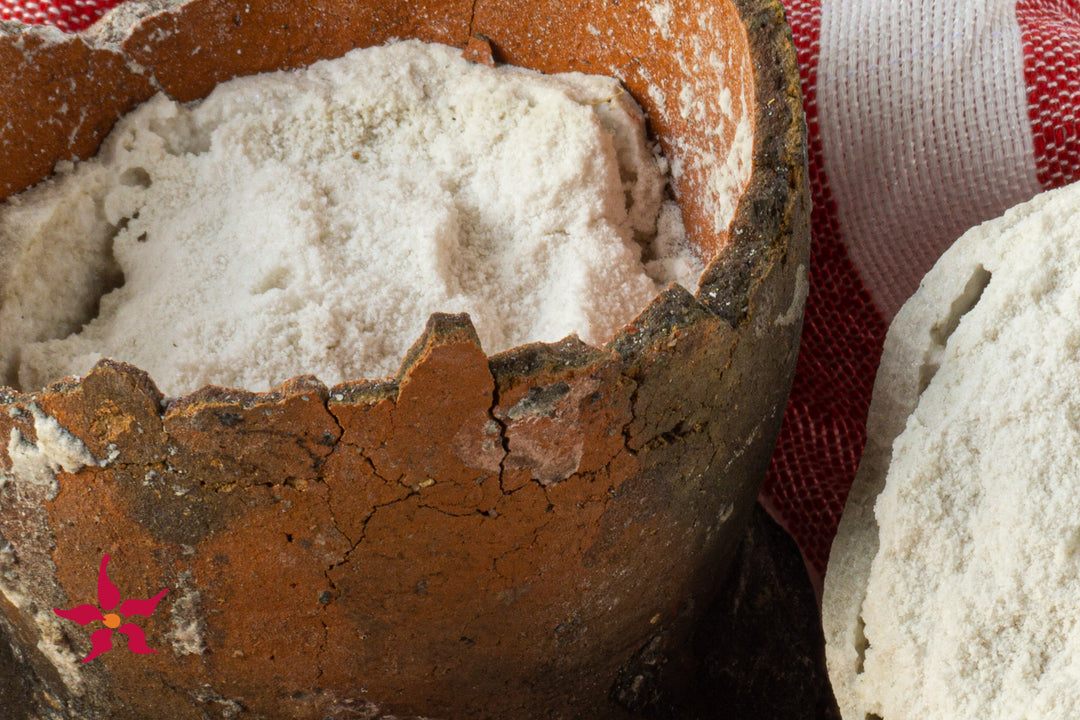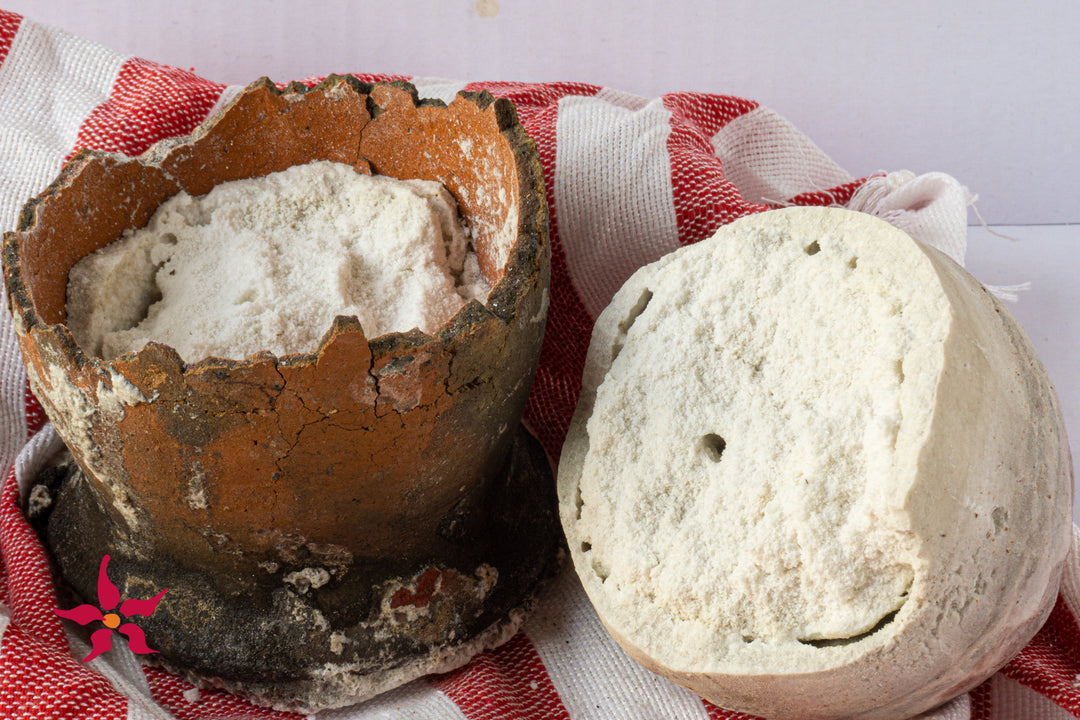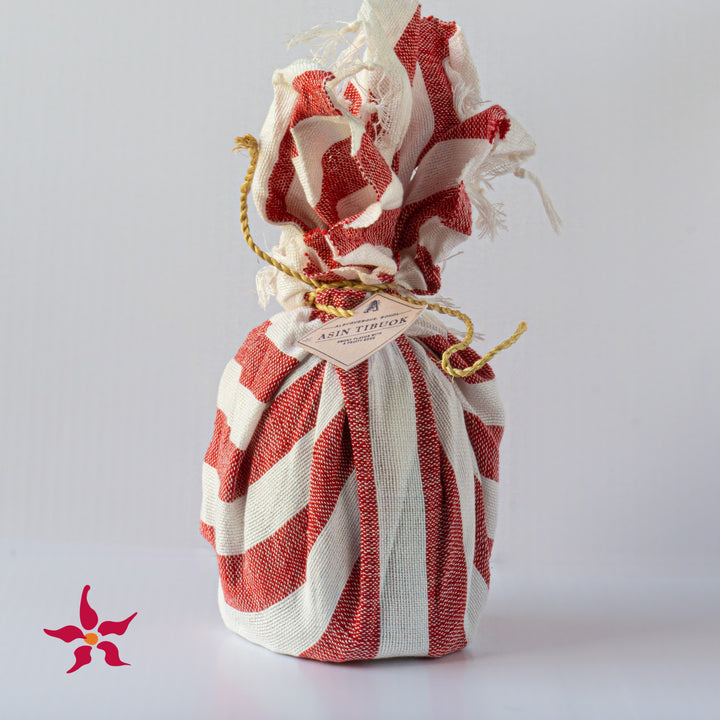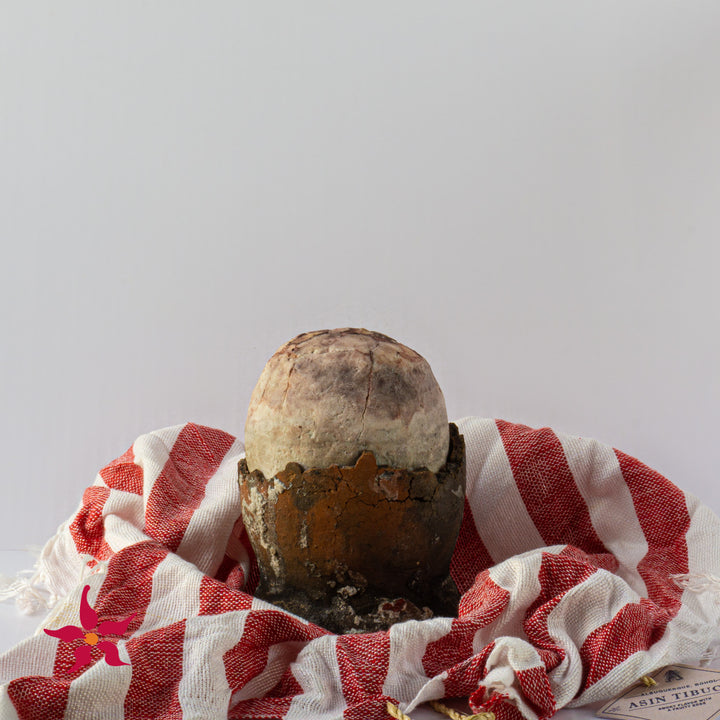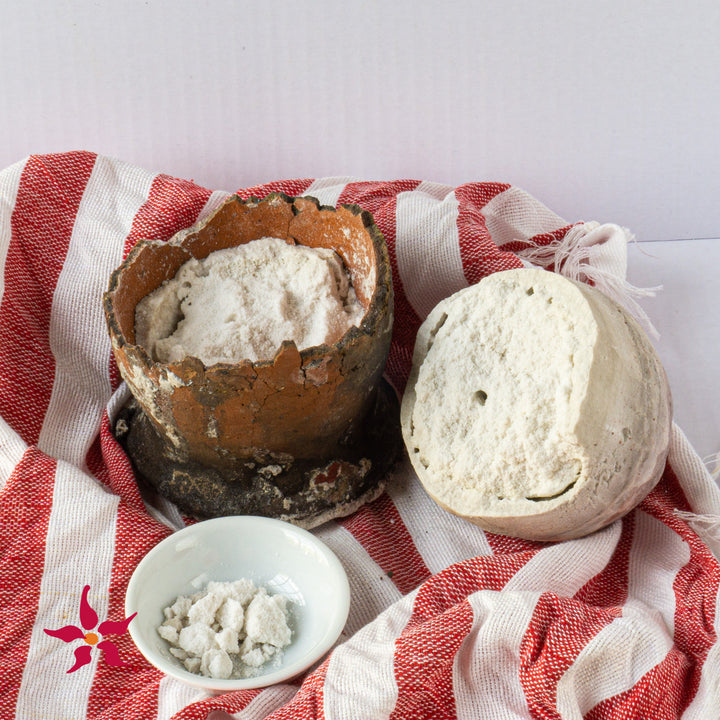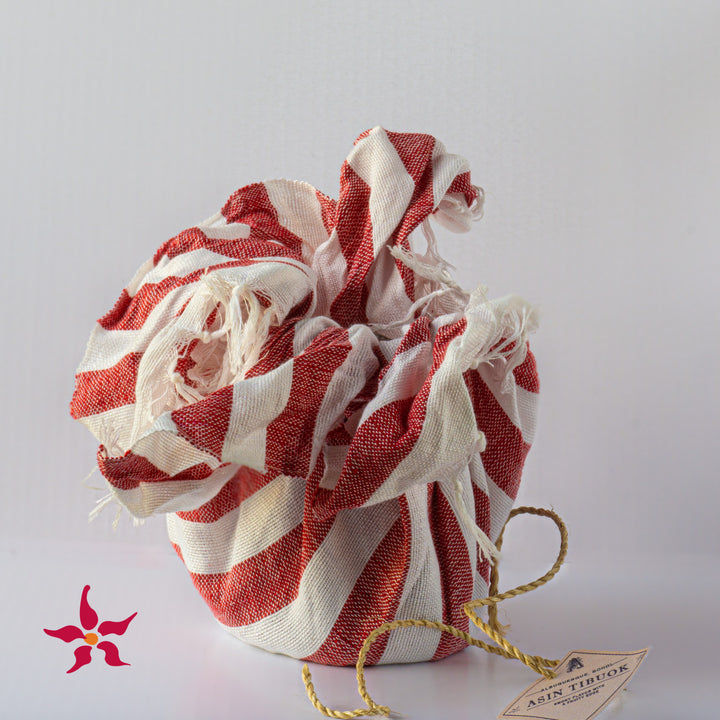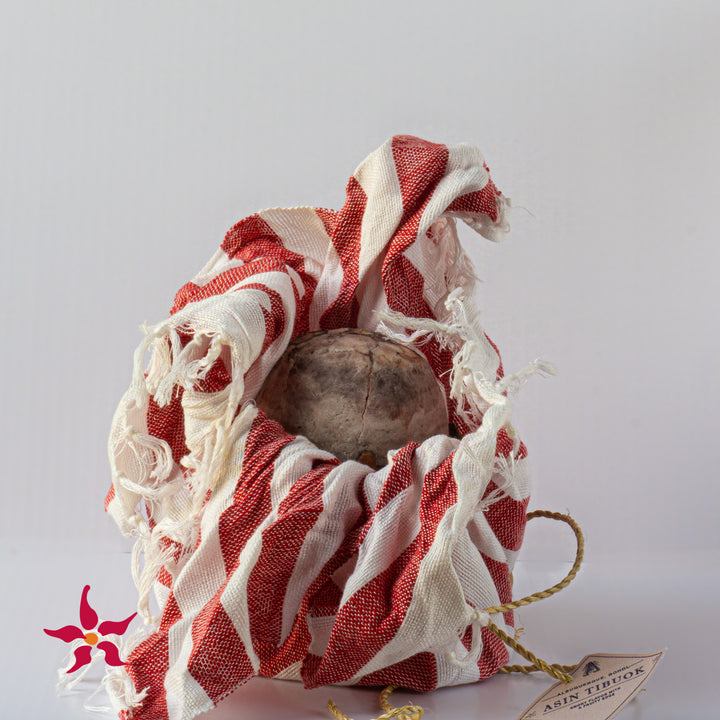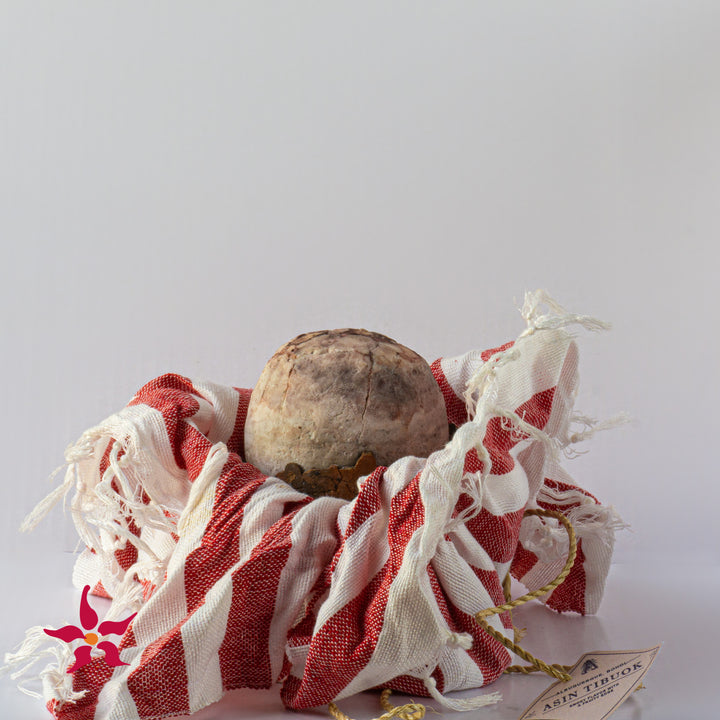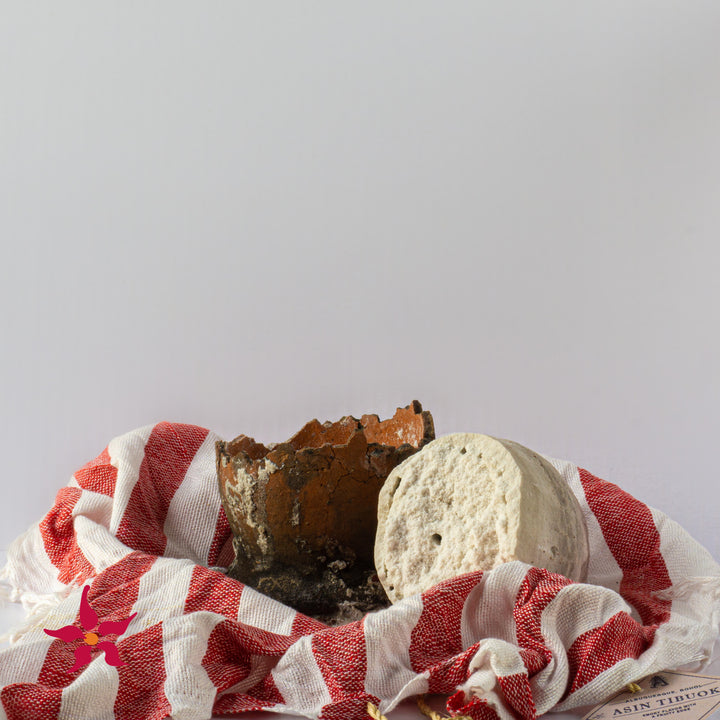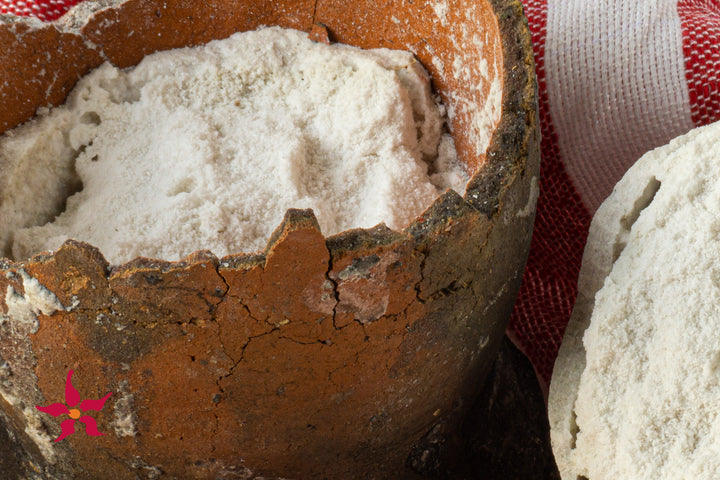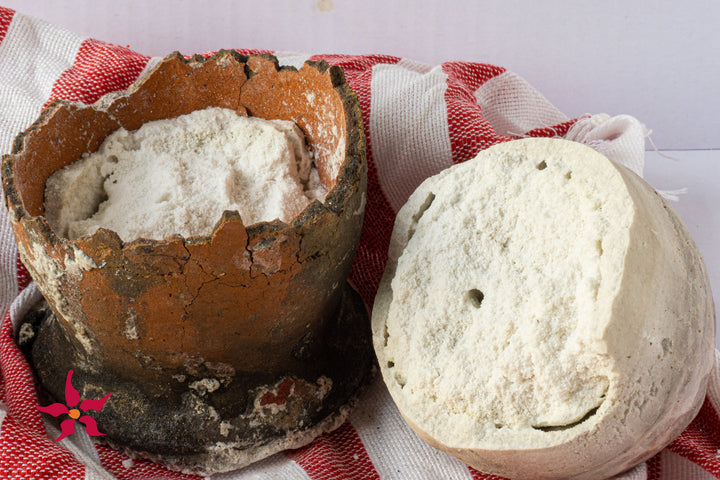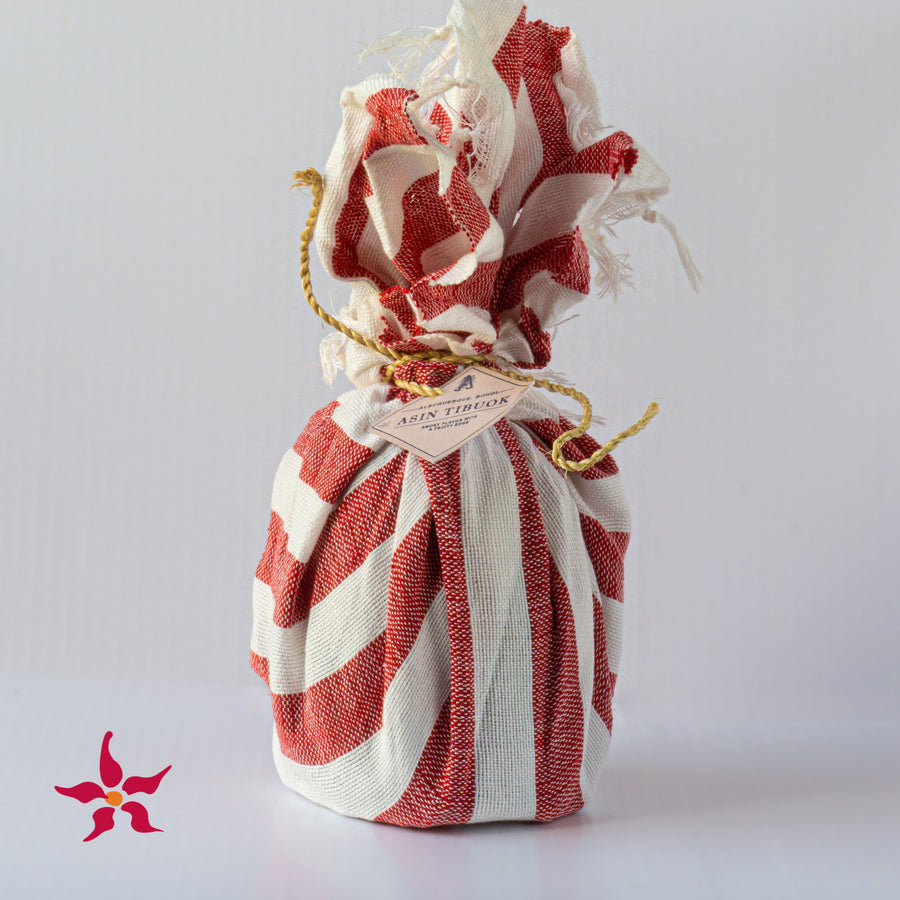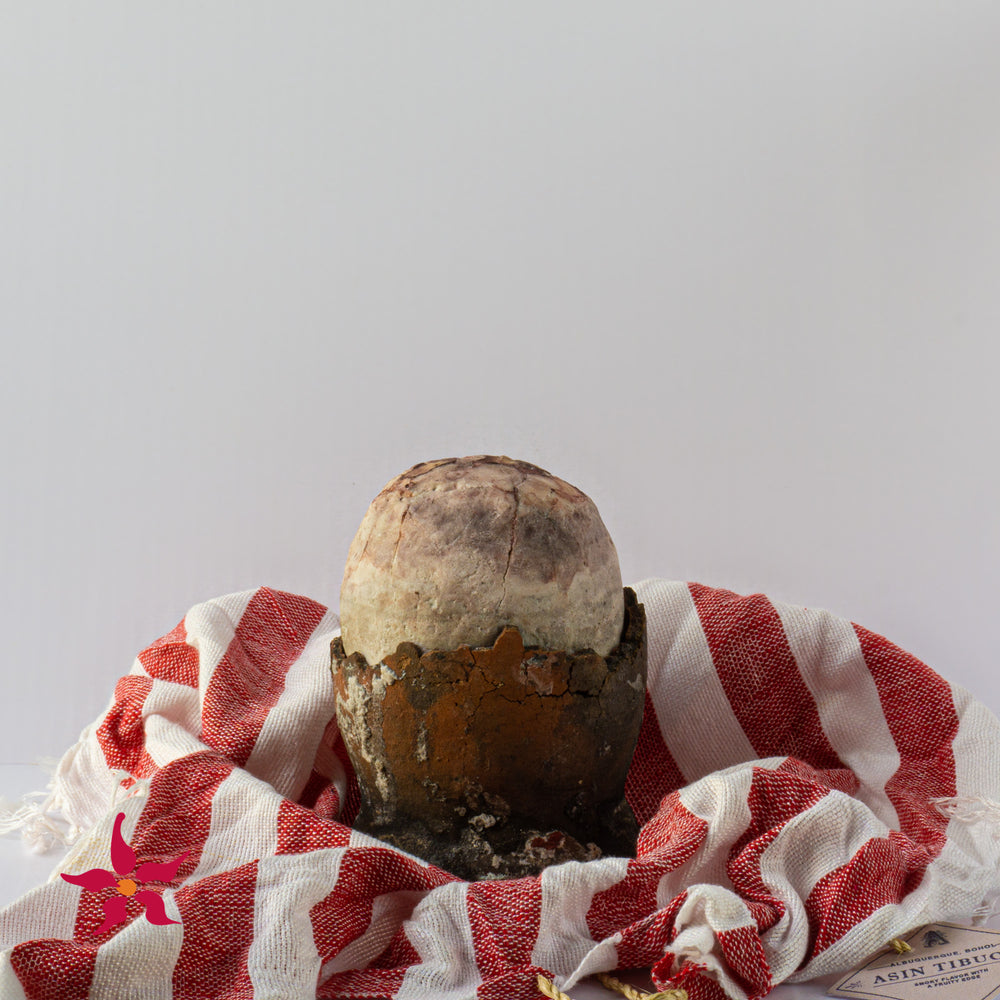Exclusive access to our newest collector's item - be the first! While supplies last!
Only 21 available!
In the serene town of Alburquerque in Bohol, Philippines, a salt-making tradition that is as rich in culture as it is in flavor. The Tan Inong Manufacturing, a small family-owned company, is one of the last bastions of Asín Tibuok production, a rare Filipino craft sea salt. The salt looks like a dinosaur egg, and it’s a miracle that this meticulously made, labor-intensive method of salt production hasn’t gone the way of the dinosaur and is indeed still practiced today. First it survived Spanish colonialism that begin in 1565, then the long and slow road of modernization. The salt even survived the Act for Salt Iodization Nationwide in 1995 (which goes by the cruel acronym, ASIN, or salt in the dominant usage of the Philippines’ 183 living languages), which forced virtually all traditional salt makers out of business, requiring all salt sold as food to be iodized. Most recently, the trend toward urbanization has drawn the younger generations away from rural communities, threatening the future of a salt unique on this earth.
How's it made?
To make Asín Tibuok, coconut husks are soaked in saltwater pools amidst the mangroves for three months. After this prolonged soaking, they are chopped into smaller pieces, sun-dried, and then meticulously burnt. The burning is a fastidious process, requiring the regular addition of seawater to create a concentrated salty ash. Seawater is then poured over the resulting ash, known as gasang, and filtered to produce a highly concentrated brine, or tasik. The tasik is the heart of Asín Tibuok. In a specialized open-air furnace, clay pots filled with tasik are heated over a wood fire. As the water evaporates after hours of careful boiling, more water is added. This process is attended to with extreme vigilance because the pots will crack if not topped off. The process continues until the pot is filled with crystallized salt, forming a purplish, unbroken orb of Asín Tibuok weighing about one kilogram.
How to use it?
Very much like a hard-boiled egg inside a thin clay shell, the finished salt can be broken out of the pot and grated, or even dipped into soups and porridge. Asín Tibuok, which literally translates to "unbroken salt," or “whole salt,” signifies not just the shape of the product, but the unbroken tradition and the undying spirit of the Boholano people. Asín Tibuok exemplifies salt’s power to tell the story of man’s relationship with nature, a story of craftsmanship, tradition, and cuisine as well as a very human story of the asinderos who have persisted in preserving this vital tie to a traditional way of life. In short, Asín Tibuok is a symbol of a cultural heritage under threat. It is a taste of the past, alive today. Oh, and the flavor? Sweet. Savory. Softly smoky. Round. Potent. As complex as any condiment, and more so than most. Recognizing its cultural and gastronomical importance, Asín Tibuok has been listed in the Ark of Taste, an international catalogue of endangered heritage foods. You will never taste anything like it, and it is entirely possible that in the near future you will never have an opportunity to.
Note: Each Asín Tibuok earthenware pot is unique. No two are alike.
Net weight: 1.92 lbs / 871g
We pick, pack and ship orders around the clock. Most orders will be processed within 1-2 business days of receipt. Many orders are shipping sooner than that! Please note orders are not processed or shipped on weekends or holidays.
We are happy to ship every package with recyclable or compostable materials. We also include a complimentary sweet bite in each order :-)


